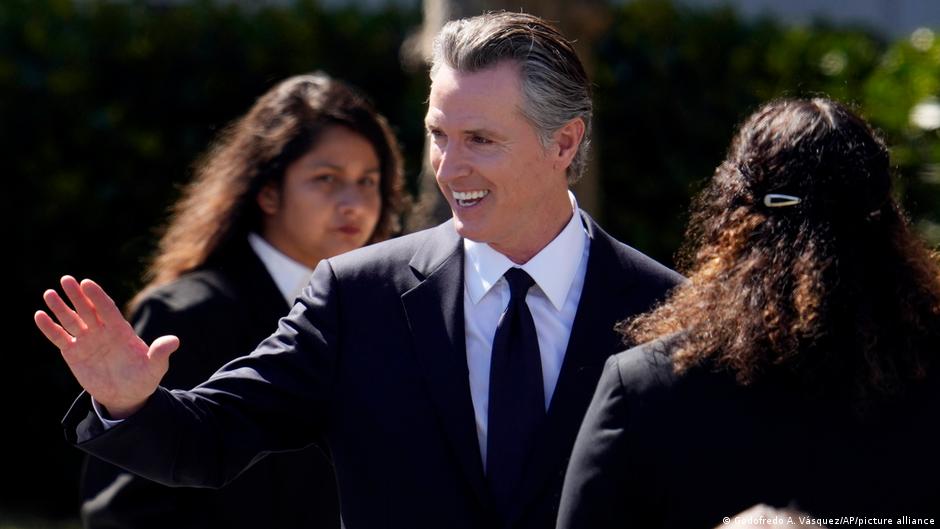States
California Governor Rejects Bill Banning Caste Discrimination.

California Governor Vetoes Caste Discrimination Bill:
The complexity of discrimination laws was highlighted by California Governor Gavin Newsom’s veto of a caste discrimination bill. Newsom argued that existing anti-discrimination laws already protected ancestry discrimination despite activists’ calls for caste-based bias protection. Community debates have erupted over this move.
Caste And Global Impact:
The caste system, which dates back thousands of years, privileges upper castes and oppresses lower castes, including the Dalit community, known as “untouchables.” Studies show that lower castes are underrepresented in higher-paying jobs despite caste discrimination laws. This issue has global implications, especially in regions with large Indian diasporas, prompting legislation in some North American cities.
Controversies Over Caste Discrimination:
Caste debates involve complex social, cultural, and religious dynamics. Some say discrimination is rare, especially outside India, but others say marginalized communities still struggle. Indian government policies, including educational reservations for lower-caste students, have helped people rise in various fields, including the tech industry.
Caste Discrimination Activists’ Challenges:
Activists for caste discrimination legislation have faced many obstacles. The recent North American movement has gained momentum, but addressing deeply ingrained social hierarchies has been difficult. Different opinions on the need and efficacy of caste discrimination legislation in South Asian and Hindu immigrant communities complicate the discourse. The California bill’s opposition raised concerns about stigmatizing entire communities, which could exacerbate tensions within these groups.
Misconceptions about caste discrimination have also hampered awareness campaigns. Critics of the bill have pointed to preexisting legal provisions against ancestry discrimination, emphasizing the need for a nuanced approach to discrimination in diverse communities. The ongoing dialogue between activists, lawmakers, and community leaders highlights the delicate balance needed to navigate social justice and cultural complexities.
Caste Discrimination: Global Recognition And Local Initiatives
Beyond California, caste discrimination has garnered global attention, prompting initiatives in various regions to address this complex social issue. Seattle’s landmark caste discrimination ban earlier this year showed the issue’s gravity beyond South Asian communities. Toronto’s recognition of caste discrimination in schools highlights the need for comprehensive bias-reduction and inclusive education.
Fresno’s recent caste discrimination ban, following Seattle’s, showed local awareness and commitment to equality and social justice. These legislative actions emphasize the need to address systemic prejudices and create inclusive and equal environments for all, regardless of social or cultural background.
Contemporary Global Dynamics And Caste:
Caste discrimination has become a global issue, particularly in the technology sector, prompting professional discussions. Indian-born tech CEOs like Sundar Pichai, Satya Nadella, and Arvind Krishna have raised awareness of the issue. Companies in Silicon Valley and elsewhere have had to deal with diversity and inclusion issues like caste-based biases and workplace culture.
While some say the global tech industry promotes inclusivity and diversity, others say proactive measures are needed to ensure a fair and equitable workplace for all. Caste dynamics and international diversity, equity, and inclusion issues have sparked discussions about corporate policies to address social prejudices and create a more inclusive workplace. Education, awareness, and proactive measures are essential to addressing caste-based biases and creating a more equitable and just society as the dialogue continues.
Read Also: A House Speaker Mike Johnson Perspectives Shaped By Raising A Black Child
Contemporary Caste Discrimination’s Socioeconomic Effects:
Caste discrimination affects socioeconomic dynamics beyond social and cultural spheres. Studies have shown that lower castes are overrepresented in higher-paying jobs despite India’s caste-based bias ban. This discrepancy shows how historical inequalities still hinder marginalized communities’ social mobility. Such disparities hinder individual progress and perpetuate systemic inequalities, poverty, and social exclusion.
Caste discrimination affects education, preventing marginalized groups from accessing quality education and resources. Poor educational opportunities limit upward mobility and reinforce systemic inequalities. To overcome these complex issues, comprehensive interventions are needed to break down structural barriers that hold marginalized communities back.
Cultural Importance And History Of Caste:
The caste system has shaped Indian society and relationships for centuries. Caste is based on occupation, lineage, and social status and is rooted in ancient Hindu scriptures. Proponents say the system maintains social order and harmony, but critics say it perpetuates deep-seated prejudices and inequalities.
Historical context shows how the caste system shapes individual identities, social interactions, and resource access in modern India. The Dalit community’s stigma reflects systemic injustices that persist despite legislative efforts to promote equality and social justice. Understanding the cultural significance of the caste system helps contextualize marginalized communities’ struggles and promotes a more holistic approach to addressing deep-rooted prejudices and discrimination.
International Caste Discrimination And Human Rights Perspectives:
International human rights organizations and advocacy groups have spoken out against caste discrimination, emphasizing the need for systemic change and inclusive societies. The UN has stressed the importance of protecting marginalized communities’ rights and dignity by addressing caste-based discrimination as a human rights issue. The UN’s caste discrimination awareness campaign has raised awareness of its pervasiveness and the need for coordinated international action to combat systemic prejudices and promote social justice.
The intersection of caste dynamics and human rights principles has also raised questions about how international law can address social inequality and protect vulnerable populations. Advocates and awareness campaigns have highlighted the complex issues faced by caste discrimination victims, urging policymakers and global leaders to prioritize human rights and promote inclusive policies that uphold the dignity and equality of all people, regardless of social or cultural background. To create a more just and equitable world, the international community must work together to end caste-based discrimination.












You must be logged in to post a comment Login